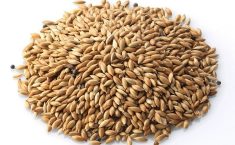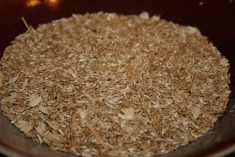CNS Canada — Canary seed has been ruled fit for human consumption by Health Canada — a victory for an industry working toward that goal for years — but it’s just one step of many to get canary seed onto plates.
Canary seed, until now used almost exclusively as birdseed, has received novel food approval from Health Canada and GRAS (Generally Recognized as Safe) status from the U.S. Food and Drug Administration, the Canaryseed Development Commission of Saskatchewan said Jan. 11.
However, producers shouldn’t yet look at the food approval as a short-term market signal.
Read Also

U.S. grains: Soy futures post biggest monthly gain in nearly five years on China trade optimism
U.S. soybean futures climbed to a 15-month high and posted their biggest monthly gain in nearly five years on Friday following a rally fueled by the prospect of revived exports to China.
“It’s going to take some time to get canary seed in the human food market in a significant way,” CDCS executive director Kevin Hursh said. “We’re hoping that it’ll gradually ramp up and become significant.”
Small quantities of canary seed have been dehulled for testing purposes, he said, but the industry doesn’t yet have the capacity to dehull on a commercial scale.
“We’re not sure whether the dehulling used for things like dehulling barley will work or not yet.”
There also need to be more cleaning plants able to segregate “itchy” seeds from the hairless (glabrous) type.
Another step is to garner interest from food manufacturers and ingredient suppliers. How quickly canary seed becomes readily available in stores depends on food processors — and how quickly the product is adopted will depend on end-use consumers.
Canary seed flour can be used to make bread, cookies, cereals and pastas, the commission said. Whole seeds can be used in nutrition bars, or in place of sesame seeds on hamburger buns.
The seed, while in the same subfamily as wheat, rye, barley and oats, can also be marketed as gluten-free, which could be a boon for consumers with celiac disease.
But it’s still uncertain whether canary seed poses an allergenic risk for wheat-allergic individuals. A protein found in canary seed is similar to another type of protein found in wheat — though it’s not similar to wheat gluten.
Thus, until the seed is proven safe for people with wheat allergies, Health Canada’s approval will require canary seed, and foods containing it as an ingredient, to have a label statement such as “May not be suitable for people with wheat allergy.”
“We hope that further work will lead to the removal of this labelling requirement at some future date,” Dr. Carol Ann Patterson, the food scientist who piloted the compositional, nutritional and toxicological work needed for canary seed food approval, said in last week’s CDCS release.
Canary seed’s approval still makes it the first novel cereal crop to be approved in Canada, she noted.
With respect to consumer and processor response, “we’re in uncharted territory here,” Hursh said. “We’re hoping that there becomes commercial interest, and we’re talking with a number of players. Certainly with the announcement of the approval we’ve had requests from different companies.”
However, the CDCS doesn’t get involved in commercial ventures, Hursh said; its position is to lay the groundwork for others to become involved in those roles.
Another area of ongoing CDCS activity involves the approval of crop protection products, the commission said in a release, as the herbicides and other crop protection products registered for use on canary seed for birdseed don’t immediately have their registrations extended to canary seed for food use.
“You can lead a horse to water, but you can’t make him drink, so how long all of this takes depends on some of those players.”
Delivered canary seed is currently trading at 24 to 28 cents per pound, according to Prairie Ag Hotwire.
— Jade Markus writes for Commodity News Service Canada, a Winnipeg company specializing in grain and commodity market reporting. Includes files from AGCanada.com Network staff.











